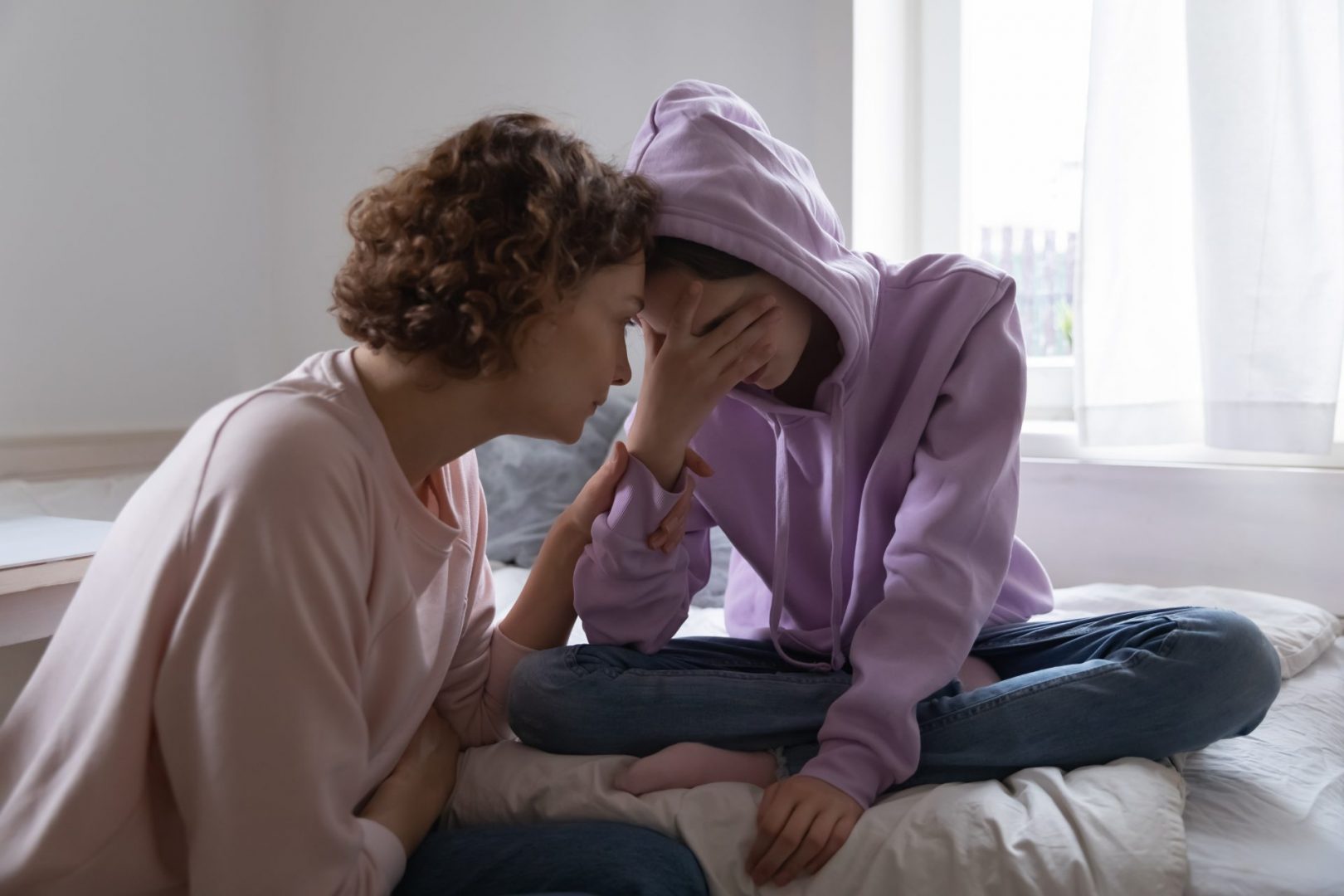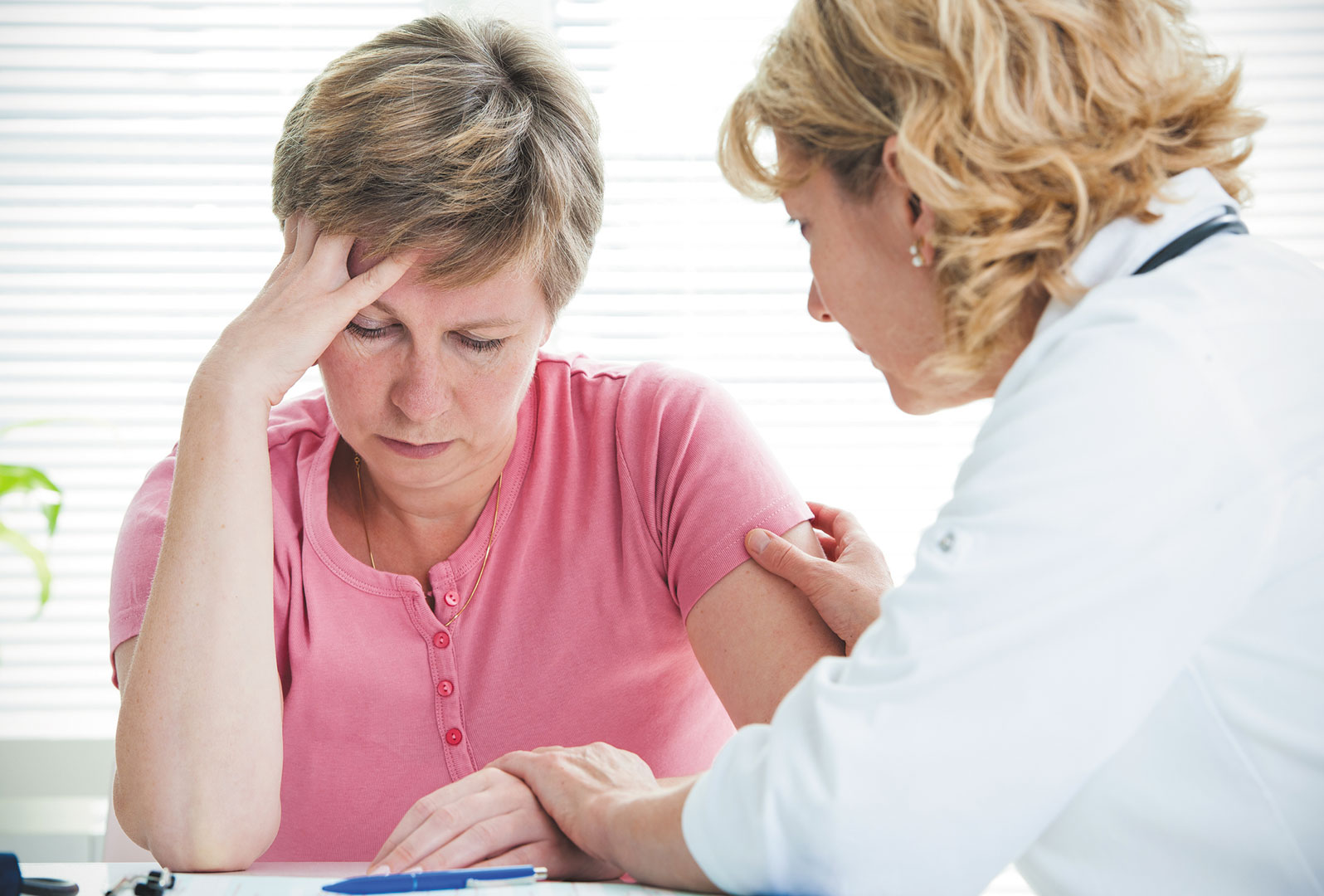What is Depression?
Depression is a mental health condition that negatively affects how you feel, think and behave. It is also known as Depressive Disorder or Clinical Depression and more than 19 million Americans had at least one depressive episode in 2018.
Everyone can be affected by depression, but some people are more likely to experience symptoms and different types of depression.
Who is affected by depression?
Everyone from children to older adults can be affected by depression. Several factors that can increase your chances of having depression are:
- Trauma – Trauma experienced at an early age may cause depressive episodes later in life. Past trauma can affect how the brain functions and deals with stress later in life.
- Life Changes – Divorce, the death of a close friend or family member, and financial standing can contribute to someone having a depressive episode.
- Brain changes – Changes in the brain can cause someone to slip into depression. People who suffer head injury may experience depressive episodes because of changes to their actual brain.
- Drug and alcohol use – Using drugs or alcohol can worsen symptoms of depression. Some medications can have side effects that cause depression.
Different Types of Depression
There are different specifiers that a doctor may associate with your depression. Symptoms are different for everybody and specifiers may help identify and treat your specific type of depression. Different specifiers include:
- Anxious distress - Depression that includes anxiety about future events or situations.
- Mixed features - Includes depressive and manic episodes. May be related to/diagnosed with Bipolar Disorder.
- Peripartum onset - Depression that occurs during pregnancy. Depression may also last weeks after giving birth, called postpartum depression.
- Seasonal - Depression can be related to changes in the seasons and reduced exposure to sunlight.

Do I have depression?
Symptoms of depression
There are several different types of depression with many different causes. Symptoms for depression vary from person to person.
In adults, symptoms may include:
- Physical aches and pains
- Loss of appetite/Weight loss
- Problems sleeping
- Loss of interest in sex
- Lack of energy
- Suicidal thoughts
Children and teens suffering from depression have similar symptoms, but they can differ slightly.
- In children - Feelings of sadness, irritability, worry, refusing to go to school or to participate in activities.
- In teens – Feelings of sadness, irritability, feeling negative, low self-worth, anger, poor performance in academics, self-harm, or avoiding social situations.
When should someone see a doctor about depression?
It is important to see a doctor, therapist, psychiatrist, or mental health professional as soon as possible if you think you or someone you know is depressed. Depression can be debilitating and dangerous if left untreated.
The good news is that most people that receive treatment see positive results. The first step, though, is getting a diagnosis from a doctor or mental health professional.

A diagnosis may include:
- A physical examination – This includes general questions about yourself and your health. In some cases, depression can be linked to an underlying health condition.
- Laboratory Tests – Such as a blood test to make sure blood counts are not irregular.
- Psychiatric Evaluation – The doctor or mental health professional may ask about specific symptoms, feelings, and behaviors to better understand your condition.
- DSM-5 – The doctor may use the Diagnostic and Statistical Manual of Mental Disorders (DSM-5), published by the American Psychiatric Association to better understand your condition.
How do I treat depression?
Different treatment options include:
- Medication: Many types of anti-depressants can be taken to ease symptoms. It is important to talk with your doctor about different options since everyone reacts differently. Major side effects can occur as a result of taking different types of anti-depressants.
- Psychotherapy: Also referred to as talk therapy. This is where a therapist will talk to you about your symptoms, feelings, and behavior patterns. They may help develop positive habits and teach you how to respond to triggers and situations healthily.
- Hospital or residential treatment: In serious cases where there is a risk for self-harm, staying at a hospital or residential treatment center may be required. This can be helpful until your mood improves and you are not at risk of hurting yourself or others.
- Exercise and changes in nutrition: Regular exercise is proven to help improve symptoms of depression. Changes in eating habits and nutrition may also help regulate moods and symptoms and a nutritionist may be beneficial for some people.
Resources
National Suicide Prevention Hotline - Provides 24/7 service via a toll-free hotline with the number 1-800-273-8255. It is available to anyone in suicidal crisis or emotional distress.
Sources
https://www.nami.org/About-Mental-Illness/Mental-Health-Conditions/Depression
https://www.mayoclinic.org/diseases-conditions/depression/symptoms-causes/syc-20356007